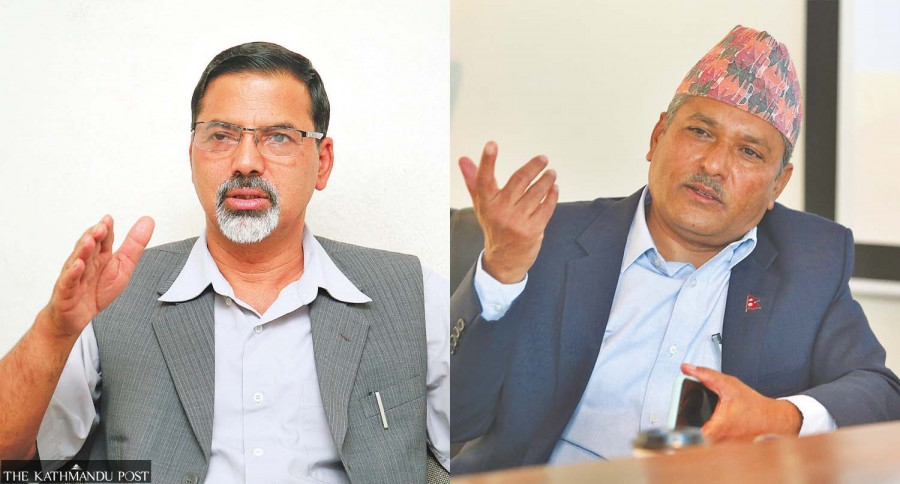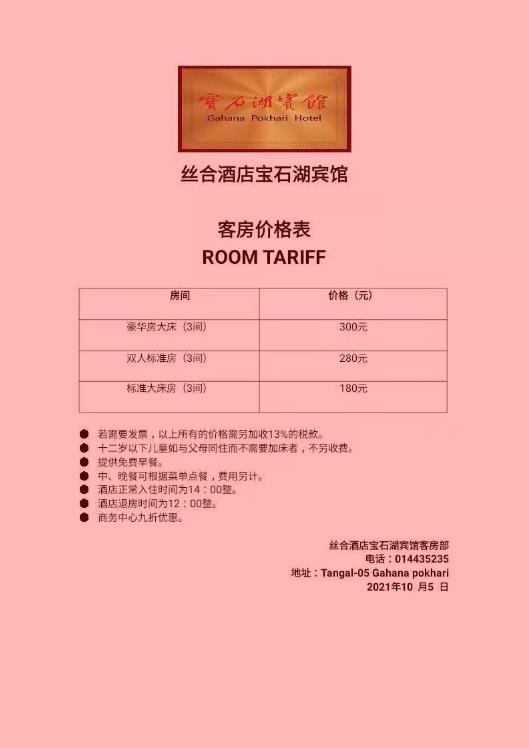
At a time when the country’s economy is battling severe headwinds due to depleting foreign exchange reserves and a crippling liquidity crunch, the two main custodians of the national economy appear to be working at cross-purposes.
There is little coherence between the approaches of the Finance Ministry and the Nepal Rastra Bank in tackling the problem.
Long-standing policy differences between these two economic policy-making bodies have resurfaced with the central bank encouraging interest rate hike while the finance ministry aims to tame the rates.
From September 17, most banks and financial institutions ramped up their interest rates—both for deposits and credit—amid the shortage of loanable funds. This invited backslash from the private sector and Finance Minister Janardan Sharma backed them.
Inaugurating the NADA EV Auto Exhibition last week, Minister Sharma said the development and expansion of manufacturing industry has been hindered due to rising loan interest rates, hinting that the finance ministry could intervene in the matter.
He said he would take measures to address the issue of high interest rates after consulting stakeholders.
The finance ministry, on September 25, formed a task force headed by its joint secretary Baburam Subedi to recommend measures to be taken regarding the concerns raised by the business community over high interest rates.
“It is essentially a fact-finding mission about the state of the economy,”said Subedi. “Based on research, we will recommend measures to address problems related to liquidity crunch, high interest rates and foreign trade.”
The government’s concerns over high interest rates come at a time when the central bank has been encouraging the banks to raise interest rates—which would attract deposits, increase liquidity in the banking system by limiting credit expansion, and discourage imports.
Post Covid-19, low interest rates contributed to high imports of goods, leading to a sharp decline in foreign exchange reserves in the last fiscal, triggering fears the country could be headed for a Sri Lanka-like crisis.
Low interest rates not only fueled imports but also contributed to the rise in inflation by creating more demand in the market. This after the Russia-Ukraine war had already contributed to a hike in global prices.
Considering this, the central bank in July introduced a tighter monetary policy to discourage credit growth and control inflation.
Two major aims of the monetary policy were to limit credit expansion to the private sector to 12.6 percent, a sharp reduction from the targeted 19 percent in the last fiscal year, and limit growth of money supply (cash, demand deposits, non-cash assets that are very liquid and are easily convertible into cash) to 12 percent from the last fiscal year’s target of 18 percent.
Private businesses have been protesting recent hikes in interest rates by banks and financial institutions and have been mounting pressure on the government to address the situation. The finance minister appears to have heeded their concerns.
Issuing a statement on September 21, the Federation of Nepalese Chambers of Commerce and Industry (FNCCI) said the interest rate hikes would put operating enterprises at risk and discourage new investment.
“It is also clear from past experience that a hike in interest rate alone would not bring deposits back to the banking system,” the private sector body said.
However, officials at the central bank say that considering the status of foreign exchange reserves and continued high imports, an interest rate hike is necessary for the economy’s stabilisation.
“The economy faces the biggest threat from declining foreign exchange reserves,” said Prakash Kumar Shrestha, chief of economic research department at the central bank. “Even though imports declined during the first two months of the current fiscal year compared to the same period last fiscal year, the level of imports is still high and the foreign exchange reserves continue to be under stress.”
According to him, the country currently cannot pay import bills of more than Rs120 billion a month, considering the inflow of remittances, export and tourism earnings, foreign aid, and foreign direct investment. But the country still imported goods worth Rs 273.59 billion in the first two months of the fiscal year, according to the statistics of the Department of Customs.
“We have to keep interest rates relatively high to discourage imports and the country is also in no position to reopen the import of motor vehicles,” said Shrestha.
The Cabinet had banned the import of several goods considered luxury items, including vehicles, in April citing the massive slump in foreign exchange reserves, and the ban was continued through another Cabinet decision in late August.
While the central bank has been averse to the idea of lowering interest rates and promoting imports, the government on the other hand introduced a bloated budget with many populist measures targeting the elections.
The government has set the target of 8 percent economic growth, which will require a lending spree. Now it is exploring the option of reducing interest rates for businesses, which is in direct opposition to the policy adopted by the central bank.
These policy contrasts between the two sides are seen amid frosty relations between Finance Minister Sharma and central bank governor Maha Prasad Adhikari. Sharma’s attempt to remove Adhikari in April had failed after the Supreme Court’s intervention.
Experts say a policy intervention is urgently needed to prevent the country from heading in the direction of Sri Lanka, by ensuring that the country has adequate foreign exchange reserves.
Sri Lanka is facing its worst economic crisis and acute shortages of essentials like food, fuel and medicines because of a lack of foreign currency to pay for the imports.
As of the first month of the current fiscal 2022-23, Nepal’s gross foreign exchange reserves decreased 1.2 percent to $9.42 billion in mid-August 2022 from $9.54 billion in mid-July 2022, according to the central bank.
“Considering the current state of foreign exchange reserves and the balance of payments deficit, it is time to tighten the belt by controlling imports,” said former central bank governor Dipendra Bahadur Kshetry.
“The private sector also should not expect cheaper loans like they received after the Covid pandemic that were meant for helping badly-hit businesses. If the loans are made available now at the post-Covid interest rates, the economy will head towards a disaster.”
He said the country needs to have adequate foreign currency reserves not only to sustain the import of essential goods and services but also to attract and retain foreign investment in the country.
“Both government and non-government sectors should take austerity measures to reduce imports,” he added.
However, Trilochan Pangeni, former executive director of the central bank, said there is room for a middle ground with a selective hike in interest rates instead of a blanket hike across all sectors.
“It is necessary to keep interest rates low for the import of capital goods such as machinery, equipment and intermediary goods as their imports aid economic growth,” he said, adding that the interest rates on the import of finished and other non-essential goods should be heavily increased.
Again, there is the other side of the coin to consider. As the Post reported on September 21, higher interest rates help to fight inflation by raising the cost of borrowing and thereby encouraging people and businesses to borrow less and spend less.
Economist Keshav Acharya said an interest rate hike will curtail private sector investment as profit margins are narrowed. “No one will invest if there are no returns.”
The Asian Development Bank says the GDP growth could slow amid a tight monetary policy that would be necessary to stem the rise in imports.
“Downside risks to growth may arise from further stringent measures by the authorities that may be necessary to curb import,” noted Arnaud Cauchois, the Asian Development Bank’s Country Director for Nepal. This will “depress domestic production and consumption, adversely affecting growth”.












